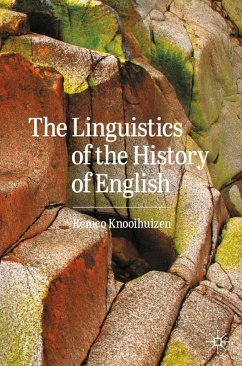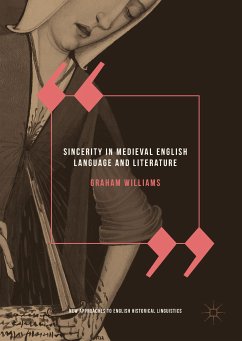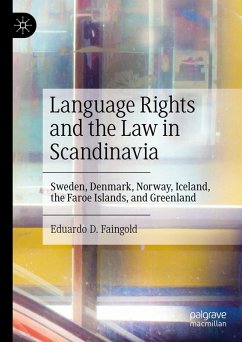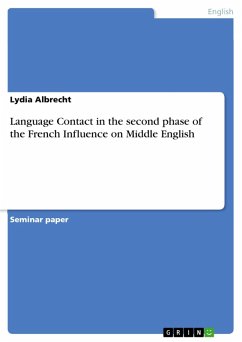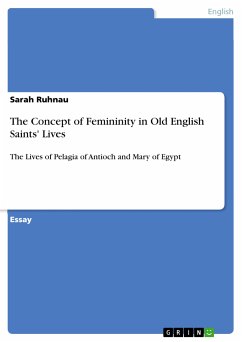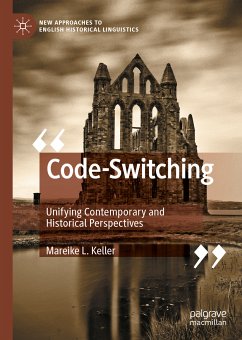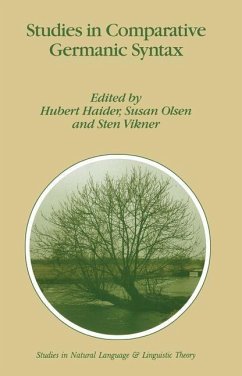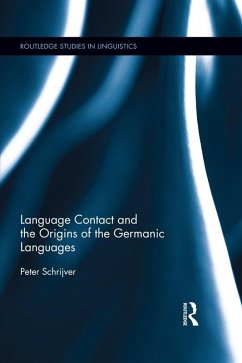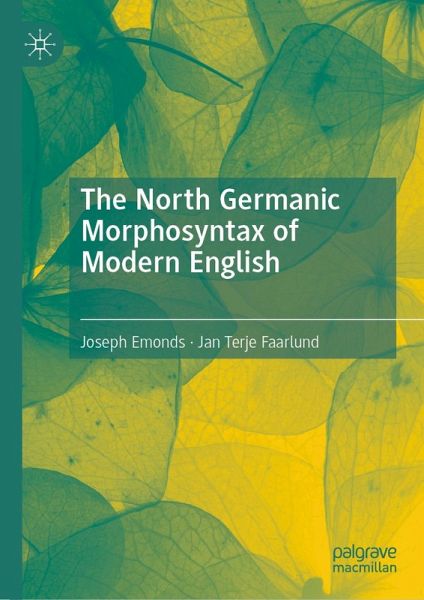
The North Germanic Morphosyntax of Modern English (eBook, PDF)
Versandkostenfrei!
Sofort per Download lieferbar
96,95 €
inkl. MwSt.
Weitere Ausgaben:

PAYBACK Punkte
48 °P sammeln!
This book argues that Middle English - and hence Modern English - is a direct descendent of Anglo Norse, the language of Viking settlers who invaded and ruled the north and east of England (the so-called Danelaw) for about 200 years preceding the Norman conquest. The authors challenge the widely accepted assumption that Middle English descends from Anglo-Saxon. Presenting over 20 arguments in morphology and syntax, they show that the patterns found in standard history of English sources derive from the North Germanic Scandinavian languages. The book shows that, while Danes ruled all England (1...
This book argues that Middle English - and hence Modern English - is a direct descendent of Anglo Norse, the language of Viking settlers who invaded and ruled the north and east of England (the so-called Danelaw) for about 200 years preceding the Norman conquest. The authors challenge the widely accepted assumption that Middle English descends from Anglo-Saxon. Presenting over 20 arguments in morphology and syntax, they show that the patterns found in standard history of English sources derive from the North Germanic Scandinavian languages. The book shows that, while Danes ruled all England (1013-1066), their Anglo-Norse, lexically but not grammatically close to Anglo-Saxon, superseded the latter throughout England. Sentential word order, modern phrasal verbs, stranded prepositions, and standard regular noun plurals, phonetic z, and split infinitives became Norse hallmarks that persist to this day, while numerous indications of West Germanic (German-style) grammar disappeared entirely. As Anglo-Norse became Middle English, it absorbed much vocabulary from the Anglo-Saxons. This book suggests that in the Middle English German-sourced vocabulary, eliminating borrowed Romance, purely Anglo-Saxon vocabulary may have been double that of purely Norse origin. However, language history is not determined by its vocabulary; what counts is rather a language's syntax, and the authors posit that this is what makes Modern English Scandinavian. This book will be of interest to scholars of Linguistics, Indo-European Studies, and English Language and Literature, particularly those studying the historical linguistic development of Germanic languages, as well as syntax more broadly.
Dieser Download kann aus rechtlichen Gründen nur mit Rechnungsadresse in A, B, BG, CY, CZ, D, DK, EW, E, FIN, F, GR, HR, H, IRL, I, LT, L, LR, M, NL, PL, P, R, S, SLO, SK ausgeliefert werden.



